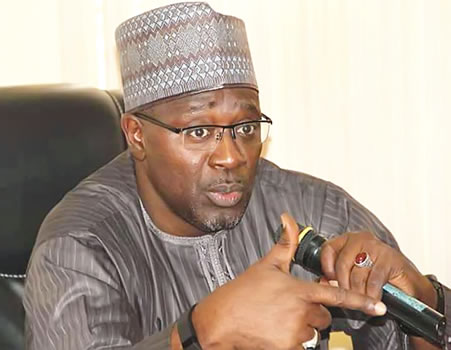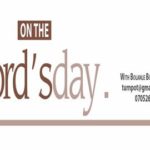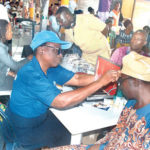The National Broadcasting Commission (NBC) lacks the power to ban songs but can ask broadcast stations not to play unedifying tracks, its Director General, Is’haq Modibbo Kawu, has explained.
Speaking against the backdrop of criticisms that trailed its purported ‘ban’ of singer Falz’s This is Nigeria during an interaction with journalists in Lagos recently, Kawu said that Nigerians imbue the NBC with the power it doesn’t have because of their poor understanding of its operations
He clarified that NBC doesn’t ban songs but only asks stations not to play any track it finds inappropriate, especially if such numbers engage in fallacious generalisations.
According to him, “What NBC objected strongly to was that point where he said something to the effect that this is Nigeria, we are all criminals. I mean, really, we are not all criminals. I’m lucky to be able to say that Falz’s father is one of my closest friends; Femi Falana is not a criminal. That much I know. So, to generalize that all Nigerians are criminals, we cannot afford to have such songs to be broadcast. And what we do is we don’t ban songs. What we do is tell our licensees [radio and TV stations] that songs are not to be broadcast because of the nature of the lyrics and some videos.
“In many places around the world, what they do is have many versions of a song. You can have a version that can be broadcast and a version for play in clubhouses. Any song that would be broadcast on radio and TV in Nigeria must be a song that people, families and children must be able to listen to. This country has a young population; 750 per cent of our population is under 35; 45 per cent under 15 and 63 per cent under 25. So it’s a young country and the influence our artists have on our lives, especially the lives of young people is so enormous that they need to be part of the national process of ordering our lives in a positive manner. If you go on YouTube and check Olamide’s song, ‘Wo’, it has had over 10 million hits and this is the nature of contemporary reality. Young artists influence our children in all our homes.”
Kawu further explained that it was planning a conference involving artists and related agencies, including the National Film and Video Censors Board and National Drug Law Enforcement Agency to discuss edifying content in their works.
“These young people are some of Nigeria’s greatest exports today in terms of their artistic exploits and we are not about trying to curtail artistic license. However, we want artists to imbibe the patriotic spirit in doing their songs, making their films. Our country has a very young population, so our artists have very important social roles in our society. So, we did not ban the song.”
Kawu also touched on why the NBC shut the radio and TV arms of the Broadcasting Service of Ekiti State (BSES) during the recent Ekiti governorship election. He explained that the Commission sanctioned the stations because they refused to follow due process and could have caused a breach of the public peace with their unprofessionalism.
He said: “When the election was coming, the Ekiti State Government appointed the Director General of its radio and TV station, the Director of Campaign for one of the parties and this was not in the spirit of the Nigerian Broadcasting Code so we did letters to them and to the DG himself that this was not acceptable but we were ignored.
“Then, in the lead to the election when the President visited, the Governor made a broadcast telling the people not to welcome the President. The station was fined but the final point was that the lawful authority to announce election result in Nigeria is the Independent National Electoral Commission but the Governor began to announce his own election results. At that point, we closed down the station. And from the responses we received from people including the people of Ekiti state, it was clear that it was a popular decision that we took because everybody remembered that in 1983, it was the announcement of results, not by the lawful authority that led to mayhem in that part of the country. We saw that there was likely going to be a repeat of that scenario so we forestalled that.
“People have been asking when are we going to reopen the station? We are not unmindful of the importance of the radio and TV station in the life of the state so we are working hard to ensure that we get the station to reopen. What we are insisting upon is that they meet all their obligations under the Nigerian Broadcasting Code. They must give us undertaking that they are going to respect the Nigerian Broadcasting Code; that they are going to pay all money they owe NBC. As we have said today, stations owe us a lot of money and that includes Ekiti Radio & TV. When that is done, and they agree to obey the Nigerian Broadcasting Code, certainly, we will allow them to go back on the air so that the people of the state can enjoy broadcasting like they have always done.”
The director general, who had earlier during a meeting with its licensees that preceded the news briefing, disclosed that the NBC was owed N4.3 billion and that it would shut down defaulting stations that failed to come up with a repayment plan by September 15, clarified that it doesn’t sanction stations indiscriminately.
“Sanctions are done across the country and done without any preconceived notion about a particular station. We monitor all stations across the country. We try to do our job in an efficient and professional manner. Our duty is to ensure that the Nigerian broadcaster walks the narrow part of the Nigerian Broadcasting Code,” he stated.






